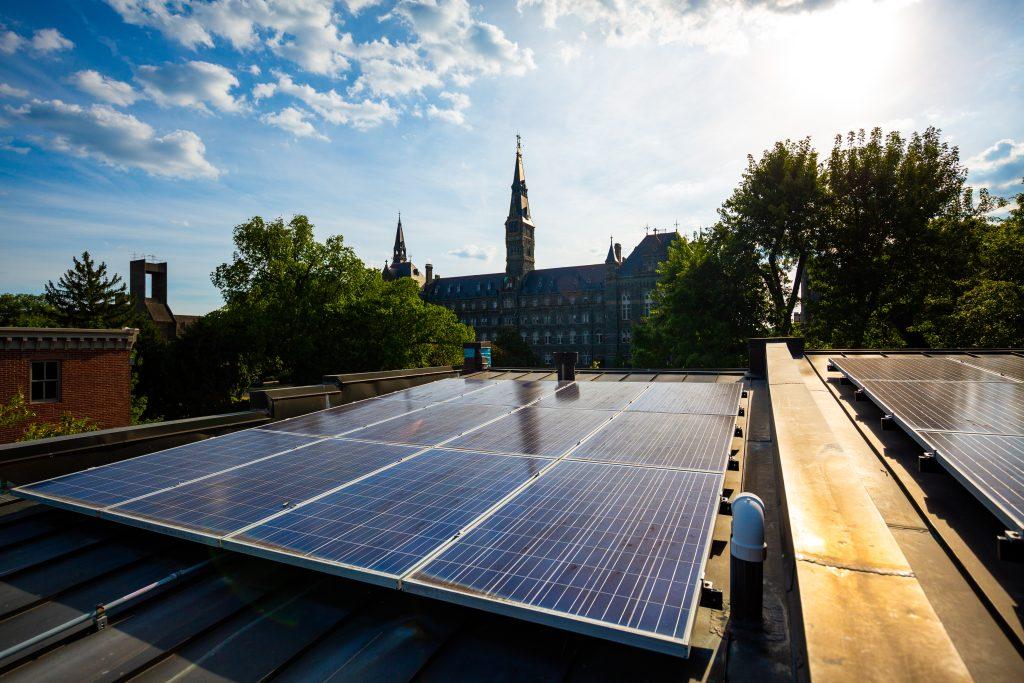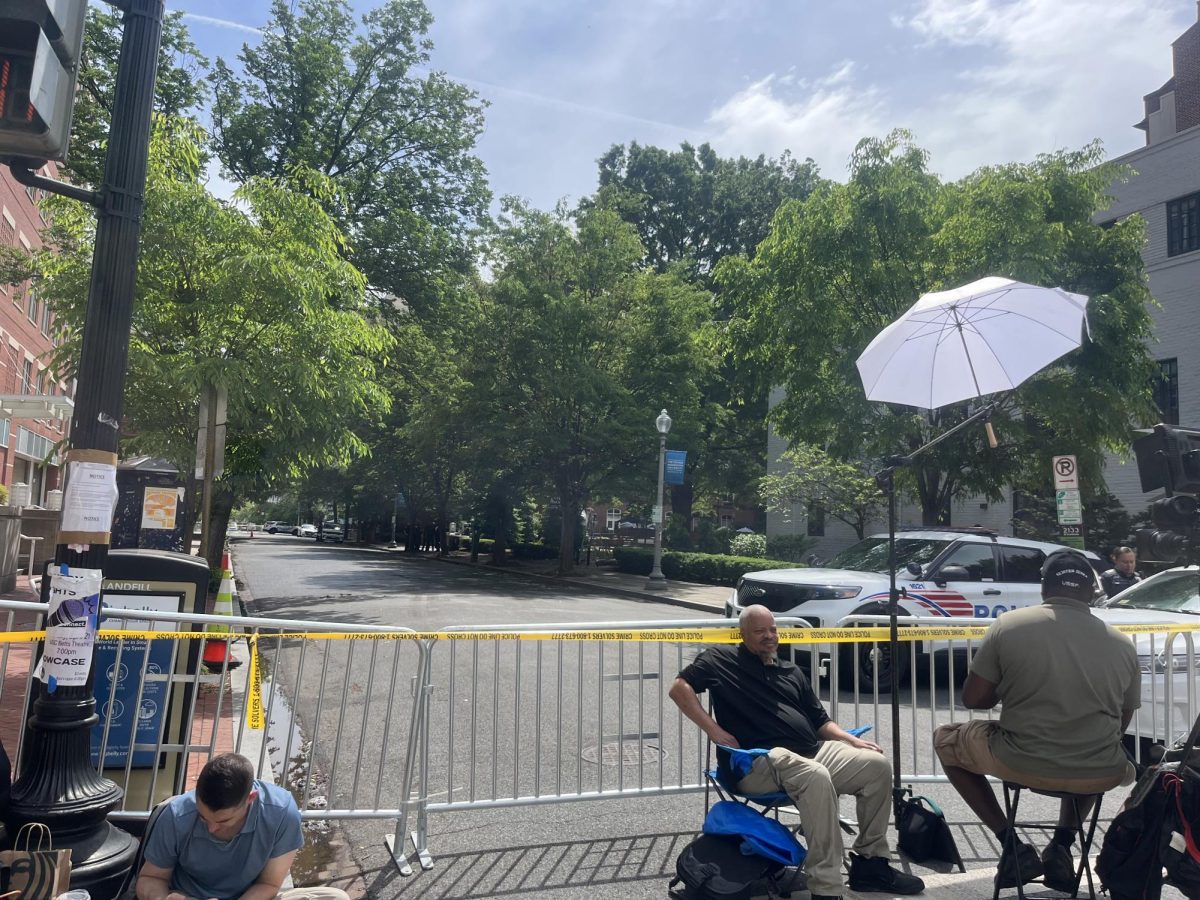New research from a McDonough School of Business (MSB) professor revealed the impact climate change and extreme weather may have on the economy.
Jason Schloetzer, an associate professor of business administration at the MSB, compiled data from years of Gallup polls measuring general economic outlook. His findings suggest extreme highs and lows in temperature negatively impact individuals’ beliefs about economic conditions, thus reducing stock returns.
Schloetzer said his findings could provide insight into how climate change shapes perceptions of the economy, as extremely high and low temperatures become increasingly common.
“This paper basically says that when it’s unusually hot or cold outside, people are more pessimistic about the current and future state of the U.S. economy, and this negative sentiment drives abnormal declines in the stock returns of local companies,” Schloetzer wrote to The Hoya. “The most interesting implication is that climate factors might change how people form beliefs about the future, suggesting that climate change may actually change the process through which people perceive future events.”

Christos Makridis, a research assistant professor at Arizona State University’s W.P. Carey School of Business and co-author of the paper, said that while researchers are unable to pinpoint concrete reasons why extreme temperatures impact economic outlook, the paper provides a foundation to explore the reasons behind this phenomenon.
“One theory has to do with how people are feeling. If really hot or cold temperatures make people more pessimistic about the economy, perhaps it is because that causes them to be indoors more and get less social interaction with others,” Makridis wrote. “Unfortunately, hard to pin down exactly without more comprehensive data!”
Makridis keeps expectations within reason when considering whether climate change’s detrimental impact on stock returns might force corporations to become more environmentally conscious.
“The tendency these days is to announce an ambitious target without thinking through all the ramifications, so our hope is just that every organization thinks about the supply chain of what they’re producing and the implications of each action,” Makridis wrote. “Everyone should look to leave things better off than when they found them, including other people and the environment.”
Schloetzer said conclusions drawn from the paper have already shaped the curriculum for the classes he teaches.
“The research process almost always motivates me to bring new ideas into the classroom,” Schloetzer wrote. “And the results of this paper inspired me to help students understand better how to incorporate various sustainability-related factors (emissions, water usage, biodiversity impacts, recycling of plastics) into thinking about the value of a firm’s contributions to society.”
Faculty research contributes to the creation of new programs like the new Master’s of Science in Environmental and Sustainability Management, according to Program Co-Director Maria Petrova.
“Faculty research informs the topics students cover in class and also gets students involved in established fieldwork and ongoing research partnerships,” Petrova wrote to The Hoya. “Research also plays an important role for designing new degree programs, especially related to the spheres of environment and sustainability.”
The incorporation of new research, such as the work of Schloetzer and Makridis, into curricula provides students with the latest information available in their fields, according to Petrova.
“For example, the MS-ESM program was launched with two focus areas — Climate Change and Energy,” Petrova wrote. “As we think about adding new focus areas to this program and designing other programmatic offerings, faculty and staff research interests and expertise will be key in determining the direction of such new academic developments.”
Makridis said it is important to consider how the economy can be impacted by factors such as the environment when aiming to understand a complete picture of the economic state.
“To me, economics is just a big toolkit that can be deployed in so many different situations, so it lends itself well to everything from the environment to labor markets,” Makridis wrote to The Hoya. “The biggest lesson is how people’s attitudes and beliefs about market fundamentals can be shaped by their own lived experience, including even smaller events like the weather on a day.”














